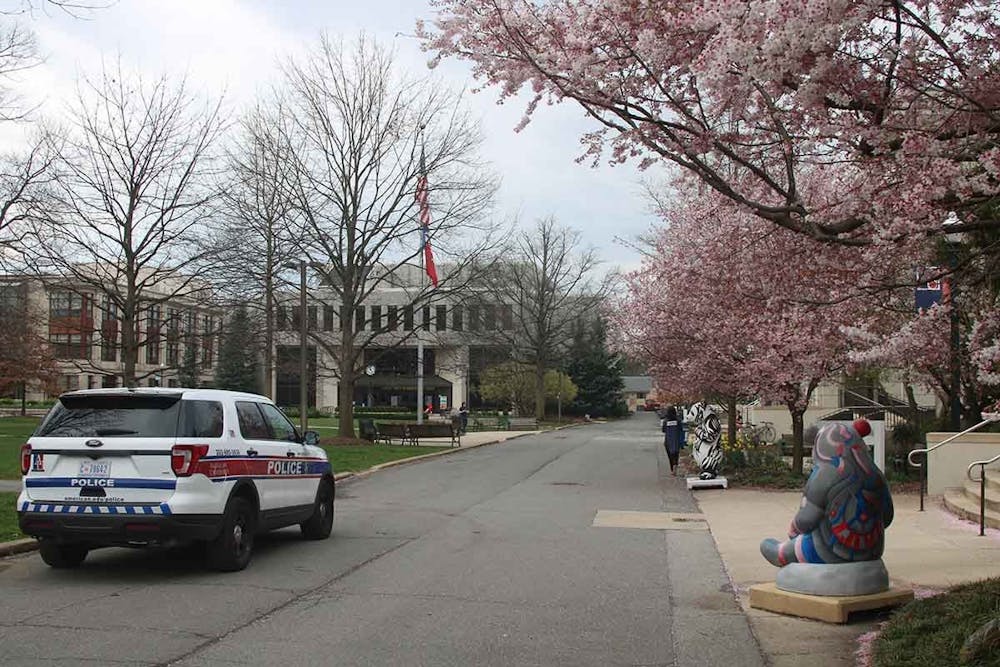Along with the suspension of American University’s study abroad programs for the spring semester, the University’s Alternative Breaks program suspended all in-person programming that requires travel in the spring and summer of 2021.
The alt breaks program, which typically sends participants on student-organized international and domestic service and study trips during spring break, will instead be entirely online this year. The program will involve no costs for students, potentially opening the programs to students who could not previously afford either the cost, previously often in the thousands of dollars, or time commitment of the programs, according to Stephen Angelsmith, who oversees the alt break program.
“I originally was skeptical about virtual exchanges or virtual study abroad, but I think there’s actually, there’s a lot of positives in the idea,” Angelsmith said. “Especially with the significant cost decrease, we’re still connecting with communities and really devoted to developing these really immersive experiences for students that previously may not have been possible to bring into the program.”
Engagement is a theme that all program leaders emphasized, especially Aqsa Rashid, the program leader for the now-canceled trip to South Africa, which was supposed to be conducted this upcoming summer.
“We’re trying to figure out creative ways to make it engaging. For example, we’re getting the addresses of the people we were supposed to meet and mailing them letters and care packages,” said Rashid, a junior in the college of arts and sciences. “Specifically for our themes in South Africa, a lot of it has to do with reenvisioning new systems of justice and abolition.”
Angelsmith said that while he and other program leaders are disappointed that travel will be suspended this year due to the coronavirus, he remains confident that the online experience will present unique opportunities that would have otherwise been difficult in an in-person environment.
“It really does open up for some interesting structure of interaction between communities and partners,” Angelsmith said. “And, we’re also speaking to other organizations that have done [programs like this] really well in the past.”
While each program’s exact structure will likely be different — Angelsmith said that some programs may meet over the course of several weekends, while others may be an intensive weekend experience — the programs will include aspects such as social media conversations and online storytelling.
Program leaders are also uncertain about what the upcoming alt breaks could look like, although detailed alternative plans have been considered.
Samuel Hiratsuka, the co-leader of the program that initially intended to travel to the Navajo Nation this spring, said that one of the main reasons why traveling would be inappropriate would be the risk of exposing the residents of the Navajo Nation to COVID-19.
Hiratsuka also said that maintaining engagement through activities and resources will facilitate understanding. The aim of this is to help students apply the principles that they would have learned in person, such as federal Indian law and conservation within Indigenous societies, to their own lives.
“[We want] to make sure that from the very beginning, we have active engagement within our participants and actually have the basic formation of a community, even if … we’re going virtual,” he said.
Similar to Hiratsuka, Rashid is brainstorming alternatives to in-person activities that will facilitate an understanding of the issues and culture that are rooted in their intended program destination. For example, this involves having virtual dinners with South Africans, doing virtual travel tours of locations in South Africa and having Zoom calls with their community partners in Cape Town, she said.
“We’re trying to emphasize the importance of the themes and how you can basically apply [them] in any context, but we’re gonna be studying in the South African context,” Rashid said.
The application deadline for spring alt break programs was extended to Jan. 29, according to AU’s website.





